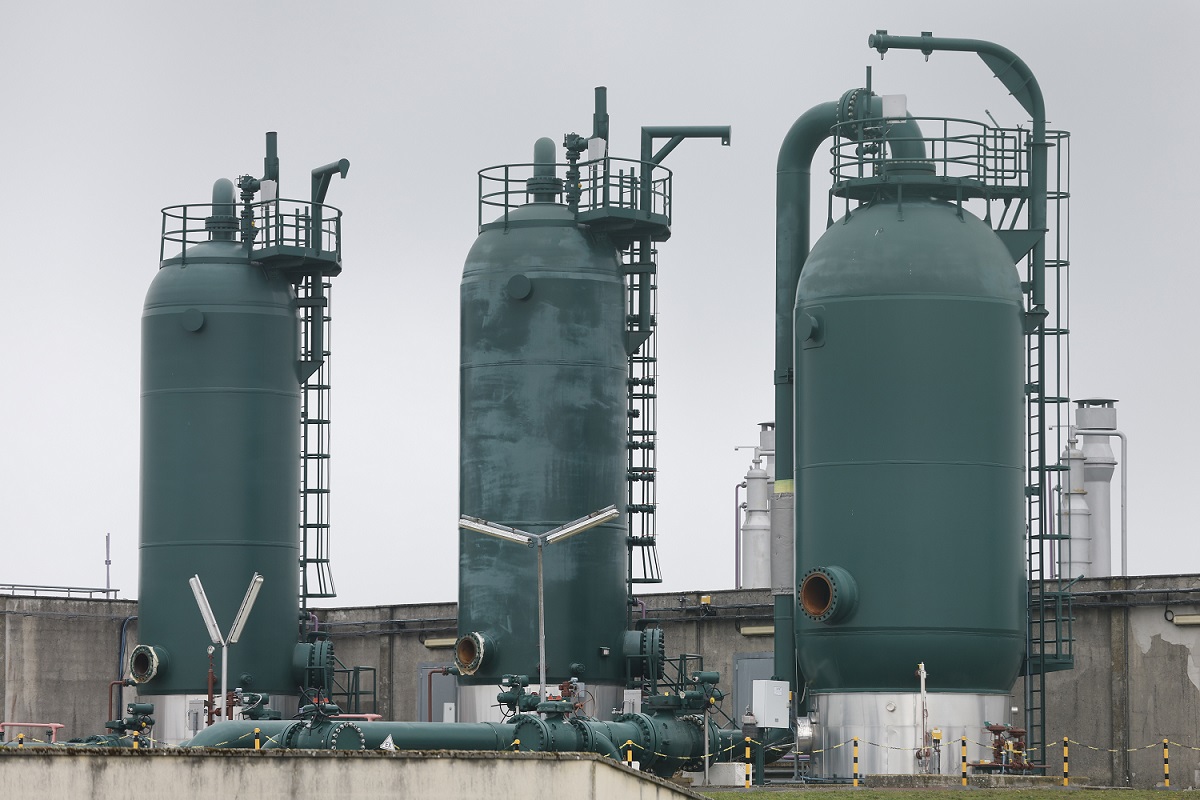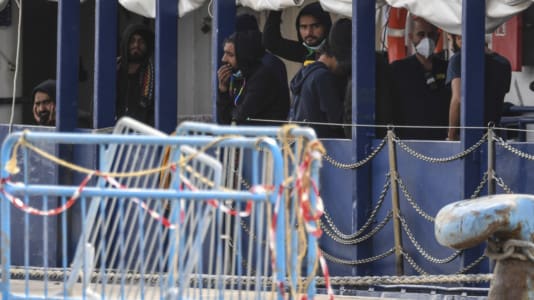“We have nowhere else to put it,” say the gas traders. Tanks are full, ships with liquefied natural gas (LNG) are waiting on European shores, and the price of this commodity continues to fall. During the winter, however, the reserves can be exhausted, all it takes is bad weather. The course of 2023 will then show how much Europe has hardened and to what extent the states can support each other. Of all the EU countries, Czechia is one of the most threatened by the gas crisis.
“When Europe was the dominant buyer of Russian gas, the geographic location of the Czech Republic was very advantageous, as we were in the center of transit routes,” said Jiří Gavor, executive director of the Association of Independent Energy Suppliers. With the Russian attack on Ukraine, the domestic advantage became a handicap. Now, the country relies on Norwegian gas and supplies of LNG, routes from west to east, which historically have not been used as often.
“Until the capacity of the west-east direction is expanded, we are most at risk of a possible gas shortage. That means for the next two or three years,” said Martin Pacovský, head of the Pražská plynárenská company, adding that Slovakia and Austria find themselves together with the Czech Republic in the situation of the greatest uncertainty.
Czech-German agreement
Europe has had a plan on how to proceed in situations of significant supply disruption for several years now.
“Since 2017, the principle of solidarity in the event of gas shortages has been codified in European legislation,” explained Monika Ladmanová, head of the Representation of the European Commission in the Czech Republic. According to the directive, states are supposed to conclude bilateral agreements on gas sharing in the event of an emergency. So far, only six such agreements out of a possible 40 have been concluded.
For example, Germany has signed an agreement with Denmark and Austria, Estonia has an agreement with Lithuania, Slovenia with Italy, and so on. However, Czechia, the country the most threatened, has not signed any agreement. It was only a few months ago that negotiations began on a possible agreement with Germany, and talks are still ongoing.
“Currently, some questions regarding compensation are not yet closed,” stated the spokesman of the Ministry of Industry and Trade (MPO), Vojtěch Srnka.
Negotiations stalled over how the price of solidarity deliveries would be determined.
“The first proposals could be interpreted in such a way that the price could be completely unlimited. The Czech side didn’t like that,” said Jiří Gavor. “According to my information, progress has been made in that the Germans have agreed that there should be a ceiling.”
According to experts, however, it is in the interest of the German government to somehow agree with the Czech government. Germany uses a large part of its gas consumption to produce electricity. If there was a gas shortage, Czechia could cover it with electricity supplies for the German market.
“We need Germany to supply us with gas, and Germany needs us to supply them with electricity,” said Pacovský. “The Czech and German markets are so intertwined that there is always a mutual interest in reaching an agreement,” he added.
The European cookbook
Given that fewer agreements have been signed than European legislators imagined, the European Commission has decided to get tougher on the issue of solidarity. The latest package of measures to combat expensive energy states that even if the member states do not have signed gas-sharing contracts, they will still have to provide it in solidarity if their neighbor is in trouble, that is, if a country does not have enough gas to cover the needs of all its vulnerable customers, especially households, hospitals, and other critical infrastructure entities.
The new measure even determines how the price of solidarity supplies should be calculated. It is to be determined as the average of the prices on the market for the 30 days preceding the request for aid from the state.
Even so, it is not certain how the rules of solidarity will look in practice. It is one thing to have a cookbook and quite another to cook according to it, especially when no one has ever prepared a dish based on some of the recipes. Moreover, it is already becoming clear that solidarity has several pitfalls. One of them is that the gas in the reservoirs mainly belongs to private companies, not the states. According to a Bloomberg analysis, only 10 percent of the gas in the EU is under the direct control of the public administration.
In addition, neither the Czech state nor the other member countries have an overview of who owns the gas in the reservoirs on their territory. “When it comes to the composition of customers of storage operators, MPO has no legal means to determine their composition,” said Vojtěch Srnka from MPO. “In addition, in many cases, it may be companies operating in several markets. So it is impossible to say that, for example, a Czech company stores gas in domestic storage tanks only for the domestic gas market, and a German company only for the German one,” he added.
Gas in the hands of the market
Due to the lack of information, the states cannot predict how private companies will behave in the event of another jump in prices, whether, for example, they will not send gas from the Czech Republic to Germany and the like. However, Michal Kocůrek, an analyst at the EGÚ Brno consulting company, is not afraid of such scenarios.
“I dare say that most of the gas in Czech reservoirs has already been sold to energy suppliers for Czech customers,” said Kocůrek. “Although the vast majority of gas in Czech reservoirs belongs to private companies, it is also bound by valid supply contracts. So there is no reason to worry that the gas should leave the Czech Republic in the event of a shortage in European markets,” the expert added.
The Czech state has only approximately 227 million cubic meters of gas in its material reserves. That amount would last the country less than a week in the winter. However, according to Gavor, the state controls a total of roughly 1 billion cubic meters, i.e., a third of all stored capacities in the Czech Republic.
“The state provided support for the filling of reservoirs, but linked it to the conditions for pumping gas from the reservoirs. Companies that have used state support must respect some rules, for example, they must maintain some stocks during the winter. They can’t sell gas to Germany just because the price there jumps up,” explained Gavor.
A state of emergency can also be implemented in the event of a shortage. Then, the state would practically confiscate gas from private companies, and supplies would go toward specific vulnerable customers, but Gavor emphasizes that such a situation is highly undesirable for Czechia.
“At the moment, we are at the end of the gas supply chain. We are very interested in the natural gas market functioning,” concluded the expert.






